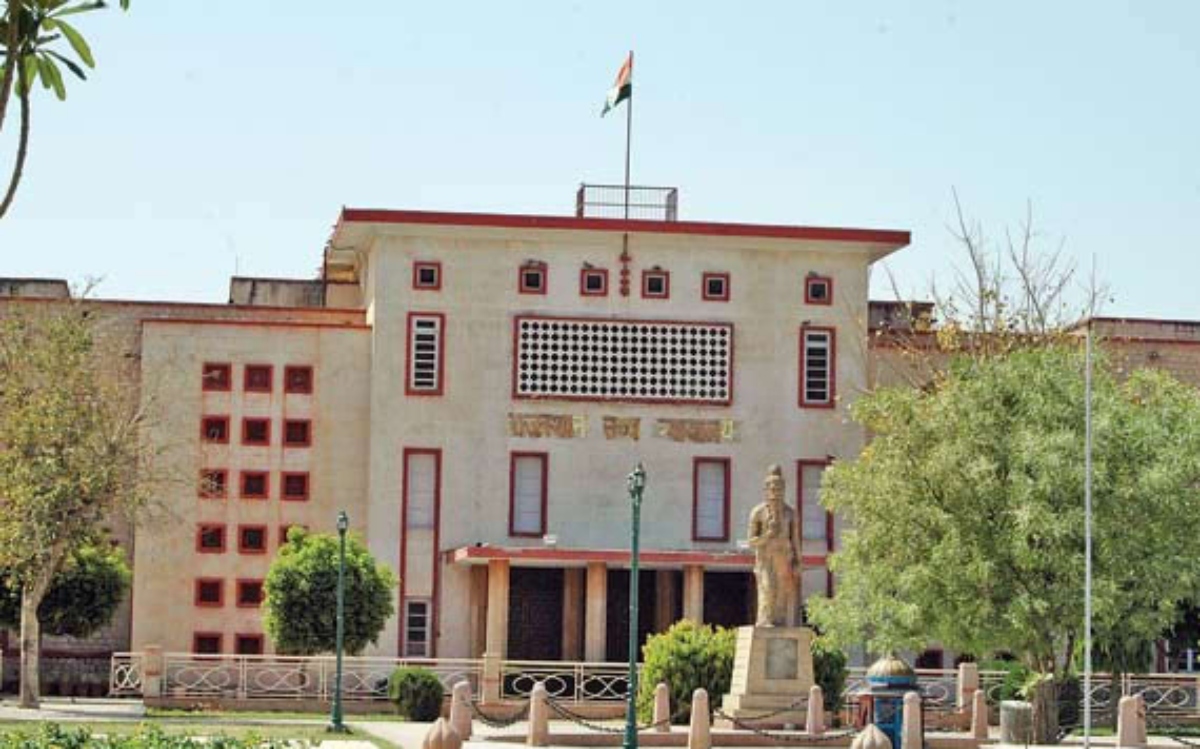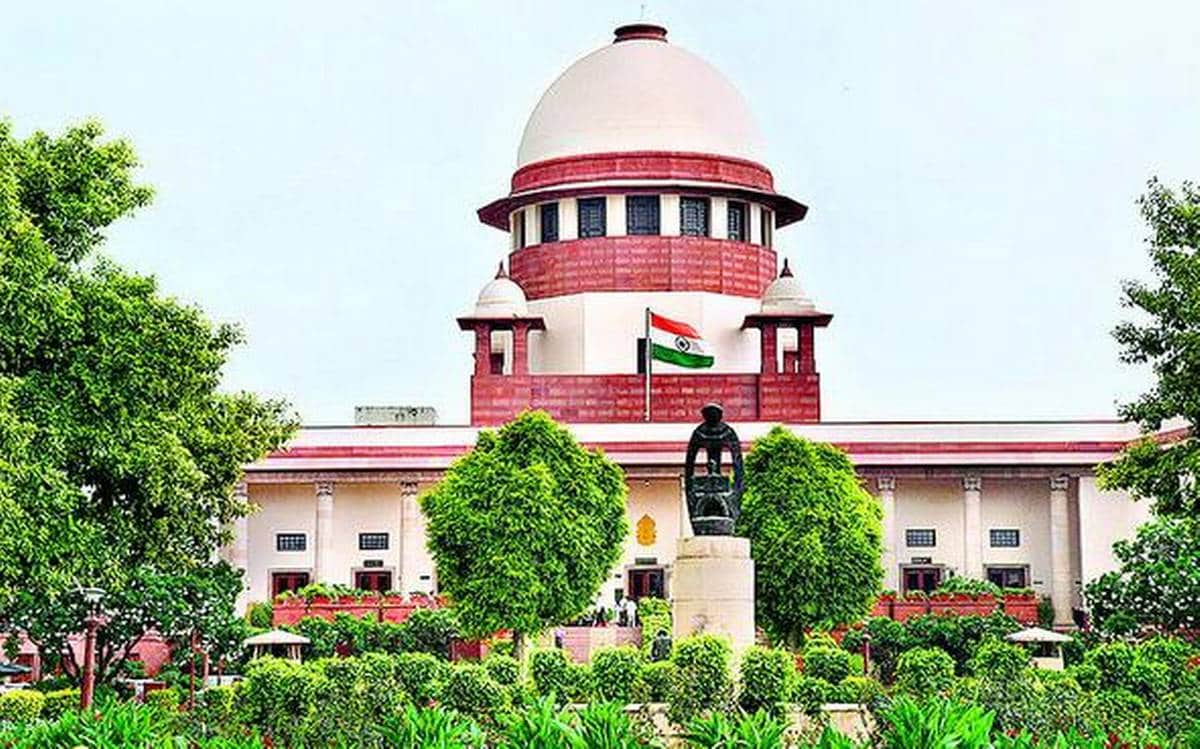While displaying absolute zero tolerance for misconduct of any kind, we saw how just very recently on March 24, 2022, the Division Bench of Rajasthan High Court at Jodhpur in a noteworthy judgment titled TC Gupta v. Union of India in D.B. Civil Writ Petition No. 10645/2019 and cited in 2022 LiveLaw (Raj) 111 has upheld the Central Administrative Tribunal, Jodhpur order imposing Rs 1 Lac cost on petitioner-advocate. The Rajasthan High Court thus very rightly observed that the petitioner-advocate who in more than one matters, has indulged in filing Original Applications in the Tribunal as well as writ petitions in the High Court and has personally signed the pleadings etc without having been specifically authorized in this regard by the litigants which cannot be glossed over. This notable case was reserved for hearing on January 18, 2022.
To start with, this learned judgment authored by Hon’ble Mr Justice Sandeep Mehta for a Bench of Rajasthan High Court comprising of himself and Hon’ble Mr Justice Vinod Kumar Bharwani sets the ball rolling by first and foremost putting forth in para 1 that, “The petitioner Shri T.C. Gupta, an Advocate enrolled with the Bar Council of Rajasthan, has approached this Court by way of this writ petition for assailing the order dated 03.01.2019 passed by the Central Administrative Tribunal, Jodhpur Bench (hereinafter referred to as ‘the Tribunal’) in Original Applications Nos.368/2017 and 369/2017 whereby, the learned Tribunal, dismissed the Original Applications filed by an association in the name and style of Income-Tax Contingent Employee’s Union represented by the petitioner in the capacity of a counsel holding that Shri T.C. Gupta was acting as a de facto party in this case. Cost of Rs.1,00,000/- was imposed upon the petitioner and the matter was referred to the Bar Council of Rajasthan for necessary action against the petitioner.”
To put things in perspective, the Bench then envisages in para 2 that, “The petitioner, appearing in person, vehemently and fervently urged that the impugned order is bad in the eyes of law. Original Applications were filed by the petitioner in a bonafide manner having been engaged as a counsel by the Union and its Member Shri Mahendra Singh for espousing the cause of the casual labours engaged in the Income Tax Department. The Tribunal rejected the Original Applications in an absolutely perfunctory manner. The observations made and the findings recorded in the impugned order that the petitioner had not been authorised to represent the Union or that he had filed a fictitious resolution in support of the Original Applications, is absolutely groundless. The direction given by the learned Tribunal imposing cost of Rs.1,00,000/- upon the petitioner, is highhanded, arbitrary and unjust and hence, the same should be quashed and set aside.”
As we see, the Bench then observes in para 3 that, “Shri Sunil Bhandari, Advocate, who represents the Income Tax Department, a formal party in the proceedings, supported the order of the learned Tribunal urging that this Court has in more than one cases, already concluded that Shri T.C. Gupta has not been authorised by the so-called Income Tax Contingent Employee’s Union to file cases on its behalf. That the Original Applications were filed by Shri T.C. Gupta before the Tribunal without proper authorisation. He further submitted that Shri Gupta himself has signed and affirmed the pleadings before the Tribunal even though he is not a party and thus, the observation made by the learned Tribunal that the counsel himself de facto became the party, is substantiated by the admitted factual position. He thus implored the Court to dismiss the writ petition.”
Needless to say, the Bench then plainly puts forth in para 4 that, “We have given our thoughtful consideration to the submissions advanced at bar and, have gone through the impugned order.”
Most remarkably, the Bench then clearly points out in para 5 that, “Ex-facie, on a perusal of the order dated 03.01.2019, it becomes clear that the learned Tribunal recorded the questioned findings observing that no proper resolution authorising the filing of the Original Applications was placed on the record of the Tribunal. The Tribunal noticed the two documents having the same contents on which, there was a variation in signatures/ number of signatories. The pleadings of the rejoinder were personally verified by the counsel Shri T.C. Gupta and not by the parties. The Tribunal observed that on comparing the documents filed on different dates, it became apparent that the signatures had been superimposed by using a xerox machine on an existing document. Very serious observations have been made by the learned Tribunal on the grave misconduct committed by the counsel in Judicial Proceedings and we are in total agreement with these observations.”
Most significantly, the Bench then also without mincing any words is candid enough to forthrightly observe in para 6 that, “This Court has noticed in more than one matters that the petitioner Advocate has indulged in filing Original Applications in the Tribunal and writ petitions in this Court and personally signs the pleadings etc. without having been specifically authorised in this regard by the litigants. Reference in this regard may be had to the Judgment dated 17.11.2021 passed by this Court in D.B. Civil Writ Petition No.2893/2019 (Income Tax Contingent Union & Anr. vs. A.N. Jha & Anr. wherein, it was observed:
“Rule 7 of the Central Administrative Tribunal Rule of Practice, 1993 is reproduced here under:-
“Production of authorisation for and on behalf of an Association :- Where an application/pleading or other proceeding purported to be filed is by an Association, the person, or persons who sign/(s)/verify (ies) the same shall produce along with such application, etc., for verification by the Registry, a true copy of the resolution of the Association empowering such persons(s) to do so: Provided the Registrar may at any time call upon the party to produce such further materials as he deems fit for satisfying himself about due authorisaton.”
In light of the preliminary objections raised by the respondent counsel pertaining to maintainability of the present petition for lack of the proper authorization and following the dictum of this Court in DBCWP No. 3798/2019, whereby in terms of Rule 7 of the Rules of 1993, proper authorization/resolution is mandatorily required.
On analysis of Rule 7 and the petitioner’s failing in furnishing valid resolution/authorization, we are of the view that the present petition is not maintainable and is hereby dismissed.”
Thus, the finding of the learned Tribunal that the petitioner, who has been enrolled as an Advocate post retirement from the Income Tax Department, has acted as de facto party in Judicial proceedings cannot be faulted. The Tribunal also noticed interpolations in the documents filed on record by the petitioner who personally verified the pleadings. Hence, the learned Tribunal was perfectly justified in imposing cost quantified at Rs. 1,00,000/- upon the petitioner for such apparent misconduct.”
As a corollary, the Bench then hastens to add in para 7 that, “As a consequence, we find no infirmity, illegality or perversity in the impugned order dated 03.01.2019 passed by the Central Administrative Tribunal, Jodhpur Bench warranting interference therein in exercise of the extraordinary writ jurisdiction of this Court.” , the Bench then directs in para 8 that, “The petitioner shall deposit cost as directed by the Tribunal with the Rajasthan State Legal Services Authority within next 45 days and submit copy of receipt with the Tribunal. If the petitioner fails to deposit the cost as above, the matter shall be reported to the District Collector, Jodhpur for effecting recovery.”
Finally, the Bench then concludes by holding in para 9 that, “The writ petition lacks merit and is dismissed as such.”
On the whole, the sum and substance of the fruitful discussion as we have discussed quite in detail of this notable judgment and as we thus see also for ourselves and as is indubitably clear also that the Division Bench of Rajasthan High Court at Jodhpur has taken very strong exception to the reprehensible act of advocate filing original application without authorization and superimposed sign by xerox machine etc. Of course, it certainly merits no reiteration of any kind that this alone best explains that why the Division Bench of the Rajasthan High Court has clearly upheld the Central Administrative Tribunal, Jodhpur order imposing thereby Rs 1 lakh cost as a penalty on petitioner-advocate. There can definitely be just no denying or disputing it!
To put things in perspective, the Bench then envisages in para 2 that, “The petitioner, appearing in person, vehemently and fervently urged that the impugned order is bad in the eyes of law. Original Applications were filed by the petitioner in a bonafide manner having been engaged as a counsel by the Union and its Member Shri Mahendra Singh for espousing the cause of the casual labours engaged in the Income Tax Department. The Tribunal rejected the Original Applications in an absolutely perfunctory manner. The observations made and the findings recorded in the impugned order that the petitioner had not been authorised to represent the Union or that he had filed a fictitious resolution in support of the Original Applications, is absolutely groundless. The direction given by the learned Tribunal imposing cost of Rs.1,00,000/- upon the petitioner, is highhanded, arbitrary and unjust and hence, the same should be quashed and set aside.”
As a corollary, the Bench then hastens to add in para 7 that, “As a consequence, we find no infirmity, illegality or perversity in the impugned order dated 03.01.2019 passed by the Central Administrative Tribunal, Jodhpur Bench warranting interference therein in exercise of the extraordinary writ jurisdiction of this Court.” , the Bench then directs in para 8 that, “The petitioner shall deposit cost as directed by the Tribunal with the Rajasthan State Legal Services Authority within next 45 days and submit copy of receipt with the Tribunal.


 Opinion3 years ago
Opinion3 years ago
 Entertainment8 years ago
Entertainment8 years ago
 Entertainment8 years ago
Entertainment8 years ago
 Fashion8 years ago
Fashion8 years ago
 Opinion4 years ago
Opinion4 years ago
 Entertainment8 years ago
Entertainment8 years ago
 Politics8 years ago
Politics8 years ago
 Entertainment8 years ago
Entertainment8 years ago








